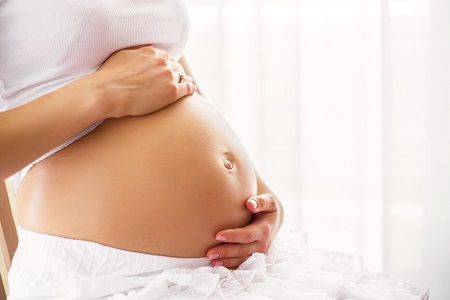Article
Younger Women Have a Higher Risk of Pregnancy-Associated Stroke
Author(s):
Age is more than just a number when it comes to stroke risk in pregnant women. It turns out that younger women are at a disadvantage on this one.

Age is more than just a number when it comes to stroke risk in pregnant women. It turns out that younger women are at a disadvantage on this one, according to a collaborative study by Columbia University Medica Center (CUMC) and NewYork-Presbyterian.
For otherwise healthy people, the risk of stroke begins to double with each decade starting at the age of 55, according to the American Heart Association. Other factors can also influence this risk, including obesity, high blood pressure, diabetes, and even pregnancy. However, in the case of pregnancy, it’s the younger women who are even more at risk for stroke.
“We have been warning older women that pregnancy may increase their risk of stroke, but this study shows that their stroke risk appears similar to women of the same age who are not pregnant,” lead author, Eliza C. Miller, MD, a vascular neurology fellow in the Department of Neurology at CUMC and NewYork-Presbyterian, said in a news release.
The researchers gathered information from the 2003-2012 New York State Department of Health database. Only women ages 12 to 55 who experienced cerebrovascular events — transient ischemic attack, ischemic and hemorrhagic stroke, cerebral venous thrombosis, and non-specified pregnancy-associated stroke (PAS) – were included in the cohort. Patients were categorized by age: 12 to 24, 25 to 34, 35 to 44, and 45 years or older. The cumulative incidence of PAS per 100,000 pregnant or postpartum (up to six weeks) women and nonpregnancy-associated stroke (NPAS) per 100,000 women were recorded.
Of the 19,146 women hospitalized for stroke during the study period, 797 of them were pregnant or postpartum, as described in the Journal of the American Medical Association (JAMA) Neurology. The median age of those who suffered PAS was 31 years and for NPAS the median age was 48 years. Incidence of PAS versus NPAS per 100,000 pregnant or postpartum in each age group was as follows:
- Ages 12 to 24: 14 vs. 6.4
- Ages 25 to 34: 21.2 vs. 13.5
- Ages 35 to 44: 33 vs. 31
- Ages 45 to 55: 46.9 vs. 73.7
To put all of these numbers into perspective, PAS made up 18% of strokes in women younger than 35 years and 1.4% of strokes in women ages 35 to 55. So while pregnancy increased risk of stroke in younger women by 1.6, pregnancy did not impact the risk of stroke in older women.
“The incidence of pregnancy-associated strokes is rising, and that could be explained by the fact that more women are delaying childbearing until they are older, when the overall risk of stroke is higher,” said senior author, Joshua Z. Willey, MD, an assistant professor of neurology at Columbia.
More research is needed on the matter, but patients and healthcare providers should be aware of their potential health risks.
Related Coverage:
Will IVF Be Successful? Check Stress Hormone Levels in Hair
Project Aims to ‘Spark’ Conversation on Female Sexual Dysfunction
Vaginal Ring Lowers HIV Risk Without Interfering with Sexual Intercourse





